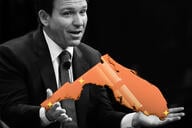You have /5 articles left.
Sign up for a free account or log in.
The Lights in the Tunnel: Automation, Accelerating Technology and the Economy of the Future by Martin Ford
Published September, 2009
This is one of those books that I wouldn't buy at $10.87, the paperback price, but was happy to pickup at as an e-book for $3.95. This is not an argument about the quality of the book (we will get to that in a minute), but more about its publication date.
The nonfiction books that I'll spend my time on are books that are currently part of a larger conversation. Books conform to the laws of network economics. A books value is commensurate with the number of people in a sub-network reading and discussing the book. This does not mean that I will only read bestsellers, rather that I'm much more motivated to read books that are also being read in my network.
The Lights in the Tunnel, being over two years old, is not getting that much discussion. The shelf life for most nonfiction books is very short, and with the growth of social media has gotten even tighter. A low price extends a nonfiction books sell-by date.
The Lights in the Tunnel asks the right questions. Ford wants us to take seriously the possibility that exponential increases in technology will displace jobs at a faster rate than our current economic models account for.
What will happen to the 3.3 million cashiers in the U.S. when the technology for retail self-check out is finally perfected? We still have over half a million bank tellers in the U.S., but how long until those jobs disappear as ATM's become more powerful, flexible and sophisticated? 2 million people in the U.S work as customer service representatives, a job that will eventually be sourced to a combination of lower wage countries and smarter computers. What will happen to our 650,000 warehouse workers once the warehouses are re-designed around the robots instead of people?
Ford's argument is technology will improve much more rapidly than our education system will evolve to equip people with skills for tasks that can't be accomplished by exponentially improving software. Besides, creative employment often takes fewer people to accomplish than many in-person service jobs. The average McDondalds restaurant employs about 40 people. How many learning designers or database engineers or developers work on your campus? If robots replace people in food prep, and computers replace the cashiers, where will those 40 people (or 650,000 who work at McDonalds in the U.S. alone) find new jobs?
Ford is convincing on the inevitability of exponential technological change resulting in the displacement of current modes of work. I fully expect that in 75 years my grandkids will have a robot that will cook their meals and clean their homes. Ford is considerably less articulate once we leave the realm of technology and move into the world of labor economics. In foreseeing massive unemployment and a subsequent economic collapse (as unemployed workers can no longer purchase goods and services), Ford seems unwilling and incapable of learning from history.
In 1900 almost 40% of the U.S. worked in agriculture. One hundred years later that percentage has dropped to less than 3%. Where did all those farm workers go? Not mining, manufacturing, or construction - which dropped from 31% to 19% of the workforce. They went into services, which jumped from less than one-in-three workers to almost eight-in-ten by the start of the 21st century. Ford's argument for the coming jobless economy would have been strengthened by situating his analysis within other economic dislocations brought on by massive increases in productivity. In other words, how different are self-checkout scanners than tractors and combines?
I'm betting that we will need all those cashiers and warehouse employees to take care of the elderly (you and me!). An aging population will require a range of services from throughout the older ages, from the high-end (retired people make great graduate students) to personal care towards the end of life. This work will be much more rewarding and important than checking shoppers out of the grocery store.
What books do you recommend on the race between education and technology?
What are you reading?




